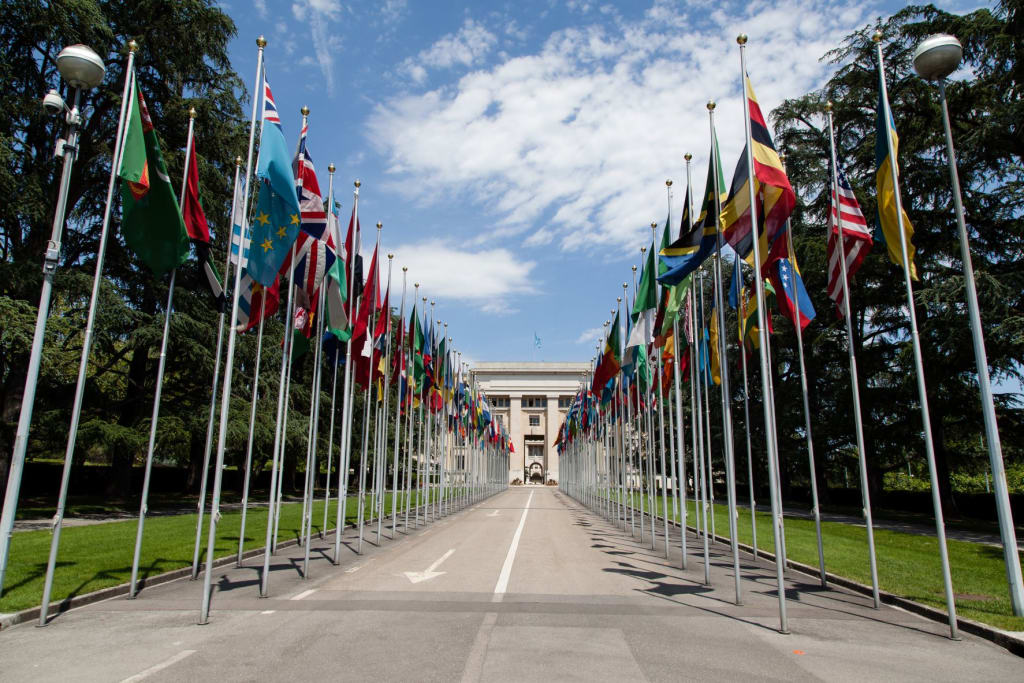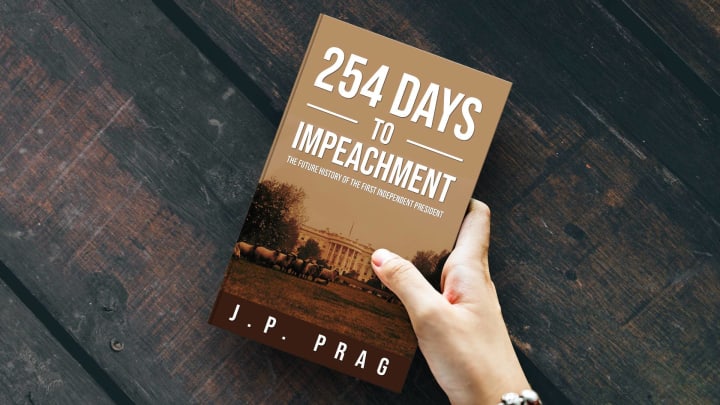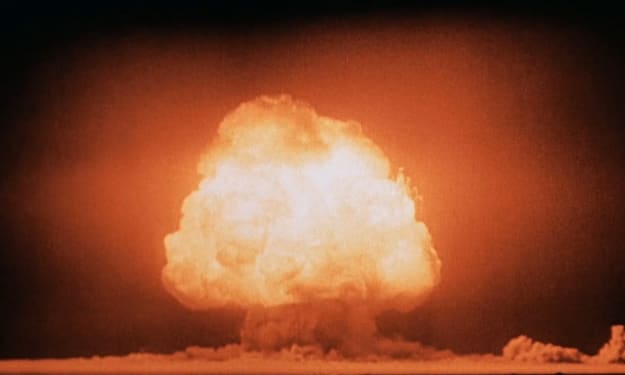
January 20th (New York City, NY) – The dream of President Franklin D. Roosevelt to have a multinational organization that would ensure “life, liberty, independence, and religious freedom, and to preserve the rights of man and justice” is now dead.
These words were part of the Declaration by United Nations signed by the United States of America, the United Kingdom, the Soviet Union, and the Republic of China on January 1, 1942 during the Arcadia Conference. Over the course of World War II, it was endorsed by an additional 43 nations. While President Woodrow Wilson failed to bring the United States into the League of Nations in the aftermath of World War I—despite being one of the architects of it and winning the Nobel Peace Prize for doing so—Roosevelt’s successor Harry Truman was able to get Congress over the final hurdle to join the true United Nations of which this declaration was a precursor.
But perhaps the United Nations was already dead when it came into existence on October 24, 1945. Truman did not completely share Roosevelt’s opinions on international affairs, and after the latter’s death added components to the United Nation’s charter that would hamstring it for its entire existence. Further, Truman worked around the United Nations and formed his own multinational force with NATO in 1949 and then invaded Korea without U.N. consent in 1950. Known as the “Truman Doctrine”, the then-President saw it as the United States’ role in the world to support all “free people” everywhere, especially against the rise of Stalin/Mao-style communism. With the Soviet Union and China both having veto power in the U.N. Security Council, Truman saw no recourse but to find loopholes in order to avoid dealing with them.
That stance remained true in one form or another throughout the entirety of the Cold War and beyond. On the campaign trail, the recently installed President of the United States was expressly critical of the United Nations, especially in light of their complete failure to stop Russia from invading Ukraine in February 2022 and all that happened in the war’s aftermath. Throughout the entire conflict, Russia and China used their permanent veto powers on the Security Council to completely eviscerate any effort to stop Russia’s expansionist plans. Contrarily, it was not the United Nations that brought about the eventual peace, but the combined efforts of Ukraine itself with NATO and other similarly aligned allies. The United Nations was proven completely impotent in the modern world, and that is seemingly why the then-independent candidate had asserted:
The structure of the United Nations is irreparable when despots have that much power.
With statements like that, it is perhaps why—of all of the Executive Orders the new President announced during the Inauguration Ceremony—this fifth one may have been the least surprising of them all, despite its massive impact across the globe.
By the text of the order, the United States is to immediately undertake a number of draconian actions that are all designed to ensure that the United Nations will collapse in short order so that no future administration could possibly revive it. Sure enough, this is a valid concern. Under former President Donald Trump, funding to specific U.N. agencies was severely curtailed or cut completely. When he was succeeded by Joe Biden, President Biden not only restored the funding to prior levels, but—according to the Council on Foreign Relations in April 2022—looked to “begin paying off part of the $1 billion owed in peacekeeping-related arrears.”
In order to accomplish this complete obliteration, the President has created a multi-pronged attack. Of the most benign of acts, the President has ordered the recall of the entirety of the United States Mission to the United Nations (USUN), save for the Ambassador—formally known as the “Permanent Representative”—and Deputy Ambassador. The 150-member staff manages all of the political interests of America within the U.N. and includes two observer representatives to the General Assembly that are also members of Congress. In the end, only the top two executive positions are to remain.
However, they are only staying behind for one purpose: to use the United States’ veto power in the Security Council. Within the Executive Order, the President clearly stated that regardless of the subject matter before the Security Council, even if it is in the interests of the United States, the Ambassador (or Deputy Ambassador if the Ambassador is unavailable) are to veto it. The simple idea is to make it so that the U.N.’s primary decision-making body will be completely paralyzed and cannot accomplish anything, even fund itself.
Meanwhile, without the USUN and only two staff members, the United States will no longer be able to attend any other bodies within the United Nations. Even if the Ambassador and Deputy Ambassador desired to, the President has ordered them and any other personnel not to, including appearing before the General Council. That means the General Council will be able to pass resolutions without even any input from the United States. However, all of those resolutions are unenforceable, anyway, without further movement by the Security Council. With the veto requirement in place, it would guarantee that the General Council would be completely toothless and useless, even on measures like trying to strip the United States of its standing and powers.
To justify this thinking, during the inauguration ceremony the new President began introducing the order with:
The United Nations is a joke, supports terrorists and despots, and—worst of all—makes no sense from an organizational perspective.
No offense to our great ally France, but why should you have permanent veto capability? France has 0.8% of the world’s population and 0.4% of the land area. The only reason you have this supremacy is because you were a racist colonial power prior to World War II. Compared to India, to Brazil, to Nigeria, to Vietnam, to Indonesia, to Algeria, to Japan... what are you?
All the countries the President listed have populations and/or geographic sizes multiple times larger than France. More so, most of them are former colonies of European empires, with Vietnam and Algeria being specifically occupied by France.
After lambasting the other permanent members of the Security Council—including the United States itself—and various countries that have been part of the two-year rotations for the 10 non-permanent seats, the President turned towards other operational aspects of the U.N.:
But it is not just the structure of the Security Council and its permanent members that are nonsense, but all other bodies within the United Nations. From the General Council downward, each country—no matter its size and population—has one vote. As such, Tuvalu with just 11,192 people across 26 square kilometers [10 square miles] that consists of 3 reef islands and 6 true atolls, has just as much say as China, India, and the United States—the 3 most populous and 3 of the top 7 largest countries in the world.
The relatively unknown Tuvalu became a clear focus for the President as the speech continued and veered into other seemingly unrelated topics, but ones the President obviously felt were connected:
And let us be clear that the United Nations is failing Tuvalu, as well. Being barely above sea level, the entire country will be uninhabitable within the next century because of rising sea levels caused by man-made global climate change. Meanwhile, Tuvalu is one of the rare countries in the world that has fully acknowledged Taiwan as its own independent country—a bravery we have not even shown. Yet because of this, Tuvalu has been put in China’s crosshairs, which uses its outstripped influence and power in the United Nations to make sure Tuvalu will never be protected, secure, or free.
Under the “One China Policy”, the U.S. and most other countries do not recognize Taiwan as its own independent nation, even though it is unofficially treated as such in most ways. Taiwan broke off from mainland China in 1949 during a civil war when the government of the Republic of China (ROC) retreated to the island in the wake of the overwhelming force of the Chinese Communist Party (CCP). The CCP, in turn, would go on to form the modern People’s Republic of China (PRC). Due to the political realities of dealing with the PRC, only a handful of countries have fully recognized Taiwan’s claims to independence. As the PRC has grown in economic, military, and nuclear power, some have even rescinded their prior recognition.
The President described several other situations similar to Tuvalu, doubling back on a few occasions. Most poignantly, the President discussed the “absolute ridiculousness” of an organization like the United Nations Human Rights Council (UNHRC) having as past and current members "such bastions of human rights" like Libya, Sudan, Afghanistan, Qatar, Rwanda, Saudi Arabia, Cuba, and many more countries with questionable—to say the least—human rights records of their own. With great agitation, the President told the crowd that the United States and its “natural allies” would not be dictated to by countries like these anymore.
Finally wrapping up this component, the President summed it up with:
These are but a few small cases. The bottom line is this: The United Nations is completely corrupt and beyond repair.
While the measures as laid out would certainly impact and perhaps paralyze the United Nations, they would not ensure its implosion. For that, the President decreed that all funding to the United Nations would cease immediately except for in a few key areas. The first was for the staff salaries of the personnel at USUN which would be paid directly by the United States. Further, certain peacekeeping missions would continue, but the U.S. would only pay the soldiers and staff it provided directly from the treasury and would not provide funding to the U.N. itself to distribute to others. Each mission would be personally approved and maintained by the President and could end at any time without warning as part of the President’s broader plans to reduce American involvement around the globe, as seen in the Executive Order announced shortly after this one.
Citing statistics from the Congressional Research Service (CRS)—an agency of the Federal Government—the President noted that the United States is responsible for at least a fifth of the entirety of the United Nations’ budget, both in required and voluntary payments, but not including what the country provides in manpower that is paid out of the regular Congressional budget. This varies greatly by program, from next to nothing for some to over 40% of the World Food Program (WFP). When asked later aboard Air Force One about cutting off funding to such a critical organization, the President emphasized that the United States is not against doing such acts, but just did not want to do them within the auspices of the United Nations. “The funds that have been set aside for something like the WFP,” the President said, “could be reprogrammed for the same purpose, just with the United States leading the charge directly. We are not against this program; we are against the organization behind it.”
The President also had earlier asserted not to be against internationalism in general, in spite of these decrees and the later ones. As stated by the Commander-in-Chief while signing this order:
To be clear: this is not an anti-globalist agenda. The “idea” of the United Nations is a fine one, but the institution that sprang out of that idea is untenable. The United States would be interested in joining a new transnational organization that is in line with the ideals the United Nations espouses, but with a structure that can actually fairly support it. And we are going to continue to maintain all of our other existing international agreements, even ones negotiated by my predecessor that I have been a vocal opponent of. To our partners in NATO, I especially want you to know the United States is not going anywhere. We are there for you and you for us, and that will not change during my administration.
Despite claims of respecting NATO, the President immediately contradicted this statement with the next Executive Order. Beyond that, the subsequent Executive Order after that one further degraded trust in this President as a purveyor of more internationalism when what was presented is largely being considered a new type of Manifest Destiny, instead.
Check back on our homepage for updated details of these rapidly developing stories.
It also remains unclear if the United States will remain beholden to previously ratified U.N. treaties, such as the Convention against Torture and Other Cruel, Inhuman or Degrading Treatment or Punishment. Further, the United States is a signatory to many U.N. treaties like the Convention on the Elimination of All Forms of Discrimination against Women that have not been ratified by Congress. Legal scholars could not provide a clear answer on whether the United States could still maintain and/or ratify treaties created by an organization that no longer exists.
When questioned how the President intends to enact these policies against the wishes of Congress, the White House seemed unusually prepared. Compared to the prior Executive Orders, the administration had justifications at the ready for overriding the power of the Legislative Branch to control the purse and dictate the overall direction and expectations of the country and its executives.
First, in details provided to reporters and signed off by legal staff, the President intends to use the 1974 Impound Control Act (ICA) to immediately cut off funding for 45 days without the consent of Congress. While the ICA was ostensibly created to stop the President from reprogramming previously appropriated funds and hand control back to Congress, in practice it has done the opposite. Among the exceptions that allow the President to work around the will of Congress is a clause that says if another area of law requires that funding be stopped, the President must do so.
To this, the administration pointed directly to the 2001 USA PATRIOT Act, which contains a section that states providing material support for terrorism is a crime. In specific terms, material support consists of either "training", "expert advice or assistance", "service", and/or "personnel". With this definition, the President’s representatives provided numerous examples of the United Nations providing all of these things to various terrorist organizations and state sponsors of terrorism—both directly and indirectly—and most notably with Hamas and Hezbollah.
In one egregious example, the White House pointed to a 2015 report authored by the United Nations itself that confirmed that Hamas and/or Islamic Jihad had stored and fired rockets from school buildings owned and operated by the U.N., a charge the body had denied for years until confronted with overwhelming evidence. Other points were not as concrete and dealt more with U.N. inaction in stopping countries like Russia and Iran from committing and/or sponsoring activities that could be classified as terroristic in nature.
If these arguments were not enough, the President also proposed that the Executive Branch has the right to terminate treaties at will. The Treaty Clause of the Constitution (Article 2 § Section 2 § Clause 2) only states that the President:
[S]hall have Power, by and with the Advice and Consent of the Senate, to make Treaties, provided two thirds of the Senators present concur;
Being that this is in the Executive section, many have read this to mean the President has final say on the status of treaties, only needing Senate approval to enact them. There is no mention of repeal anywhere in the Constitution and the Supreme Court has never ruled one way or another. When presented with such cases, the Supreme Court in the past has ruled that it is a political question and therefore the Judicial Branch has no say in the matter. In practice, many Presidents have unilaterally withdrawn from treaties, such as when Donald Trump left the Joint Comprehensive Plan of Action (JCPOA)—more commonly known as the Iran Nuclear Deal—in 2018. However, in such cases, it is usually because there is some type of out clause that can be executed. President Trump said that Iran was not abiding by the terms of the treaty and therefore he could revoke it.
Similarly, this President has pointed to the same ability. Although the United Nation’s Charter deliberately did not provide for a withdrawal, that idea is overwritten by rebus sic stantibus, or "things standing thus". In short, this doctrine of international politics maintains that a treaty—even one without an out clause—can become null and void when there are material breaches or circumstances change. The President has certainly made a case for this.
Beyond the story at home, in order to quickly cripple the U.N., the President has made it known that the administration will be reaching out to allies to recommend that they also withdraw from the U.N., especially those who feel they have been unfairly maligned by the organization. So even if somehow Congress and the Supreme Court get involved, the President will be able to argue that the point is moot and that the United Nations is gone forever, no matter which country is to hammer the final nail into the coffin.

The above piece is an excerpt from the speculative fiction novel 254 Days to Impeachment: The Future History of the First Independent President by J.P. Prag, available at booksellers worldwide.

Learn more about author J.P. Prag at www.jpprag.com.

254 Days to Impeachment is a work of mixed fiction and nonfiction elements. With the fiction elements, any names, characters, places, events, and incidents that bear any resemblance to reality is purely coincidental. For the nonfiction elements, no names have been changed, no characters invented, no events fabricated except for hypothetical situations.
About the Creator
J.P. Prag
J.P. Prag is the author of "Aestas ¤ The Yellow Balloon", "Compendium of Humanity's End", "254 Days to Impeachment", "Always Divided, Never United", "New & Improved: The United States of America", and more! Learn more at www.jpprag.com.






Comments
There are no comments for this story
Be the first to respond and start the conversation.